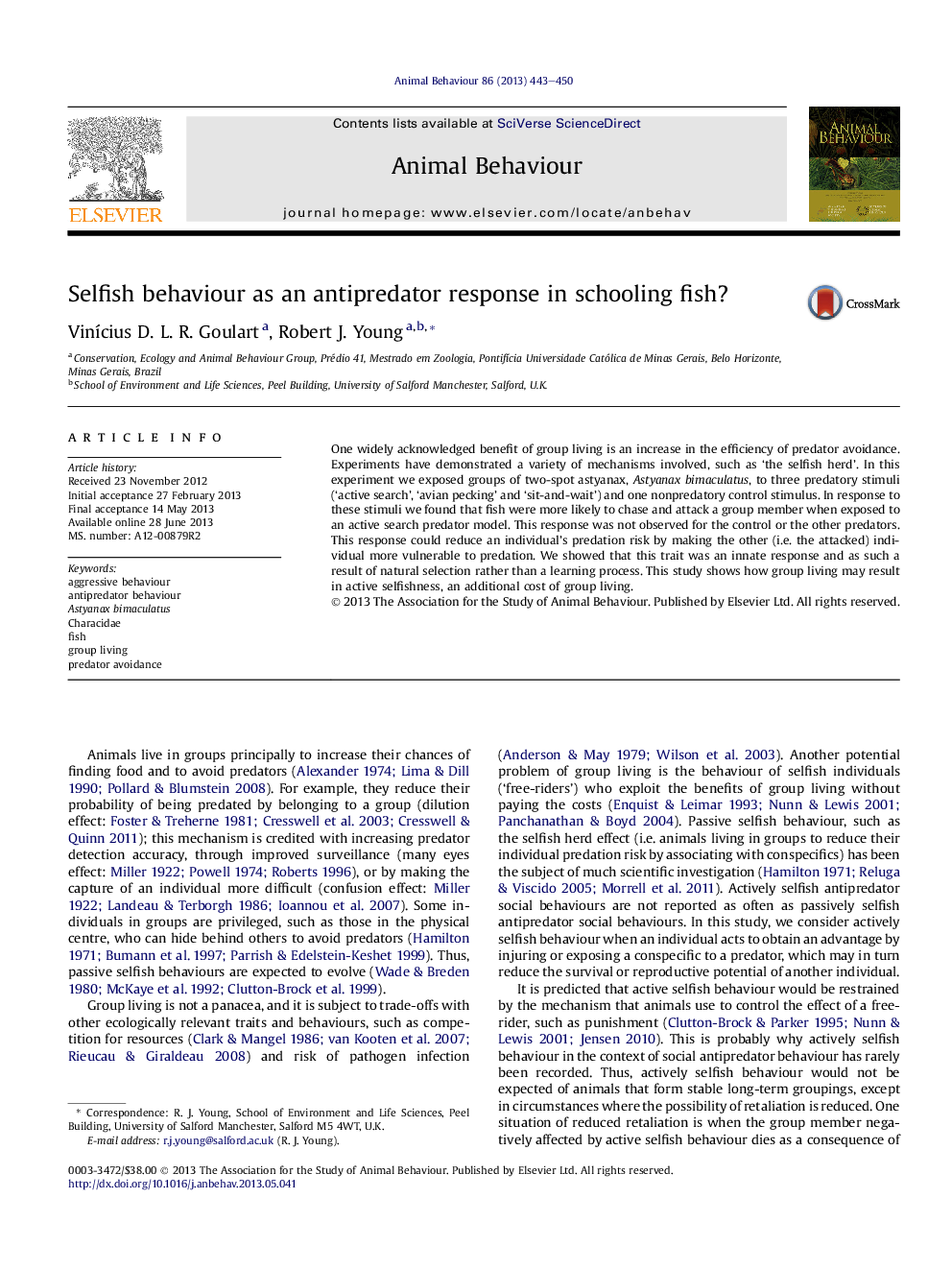| کد مقاله | کد نشریه | سال انتشار | مقاله انگلیسی | نسخه تمام متن |
|---|---|---|---|---|
| 2416611 | 1104282 | 2013 | 8 صفحه PDF | دانلود رایگان |

• We exposed a common freshwater fish species to different predatory stimuli.
• Fish groups showed aggressive behaviour towards group members in response to an active search predator stimulus.
• Novel object presentation led to an increase in anxiety but not aggression.
• Selfish behaviour may be elicited by certain predatory risks in group-living organisms.
One widely acknowledged benefit of group living is an increase in the efficiency of predator avoidance. Experiments have demonstrated a variety of mechanisms involved, such as ‘the selfish herd’. In this experiment we exposed groups of two-spot astyanax, Astyanax bimaculatus, to three predatory stimuli (‘active search’, ‘avian pecking’ and ‘sit-and-wait’) and one nonpredatory control stimulus. In response to these stimuli we found that fish were more likely to chase and attack a group member when exposed to an active search predator model. This response was not observed for the control or the other predators. This response could reduce an individual's predation risk by making the other (i.e. the attacked) individual more vulnerable to predation. We showed that this trait was an innate response and as such a result of natural selection rather than a learning process. This study shows how group living may result in active selfishness, an additional cost of group living.
Journal: Animal Behaviour - Volume 86, Issue 2, August 2013, Pages 443–450